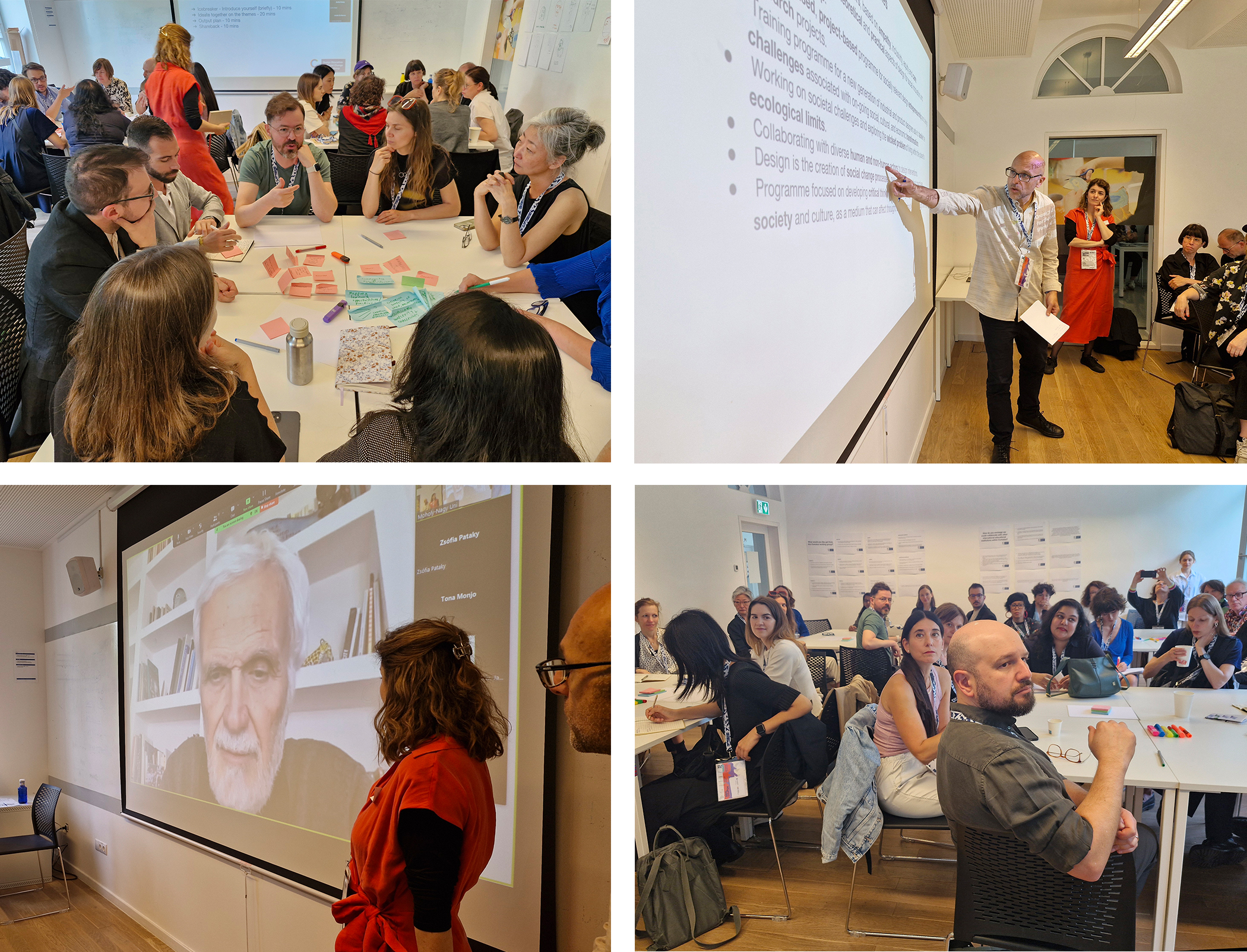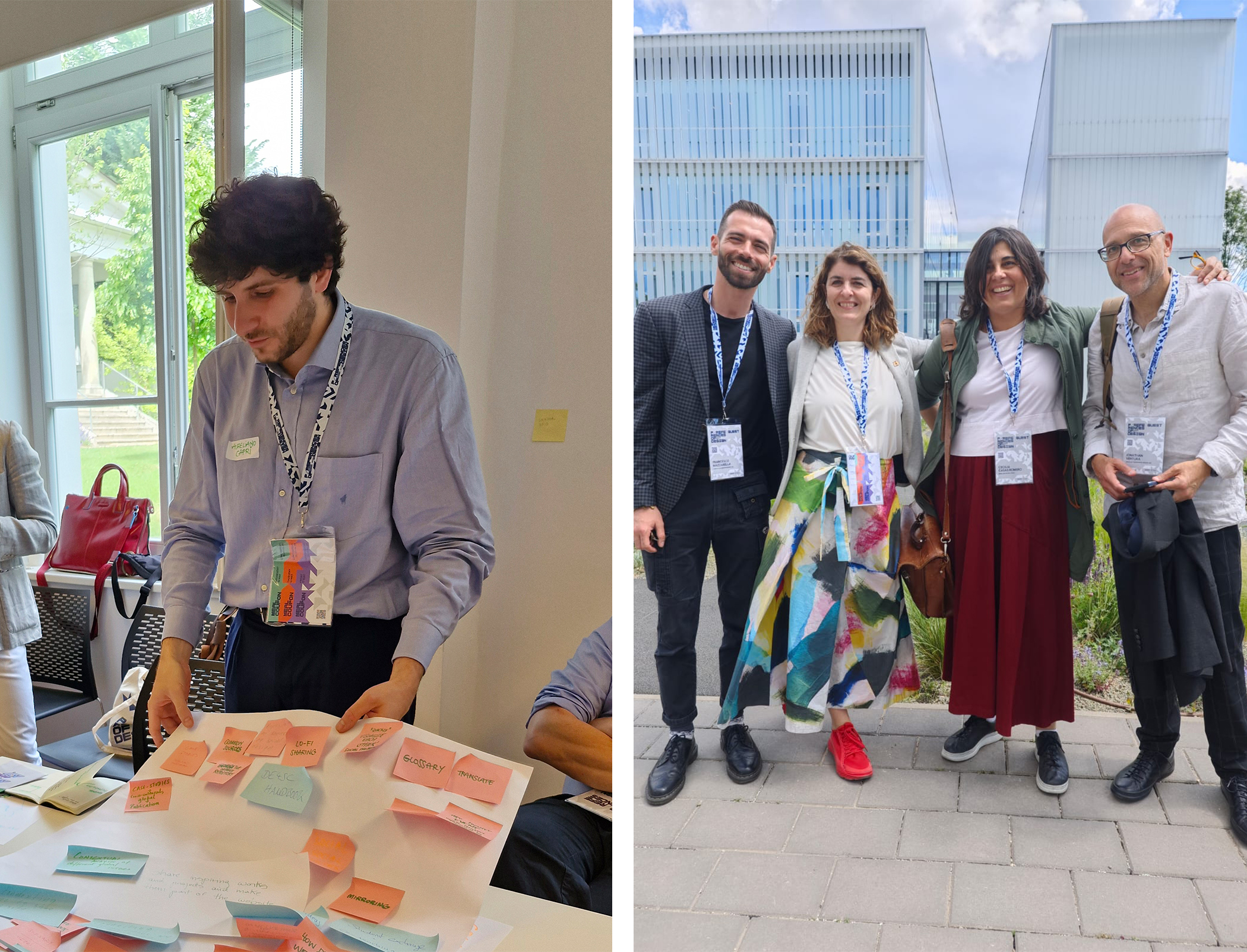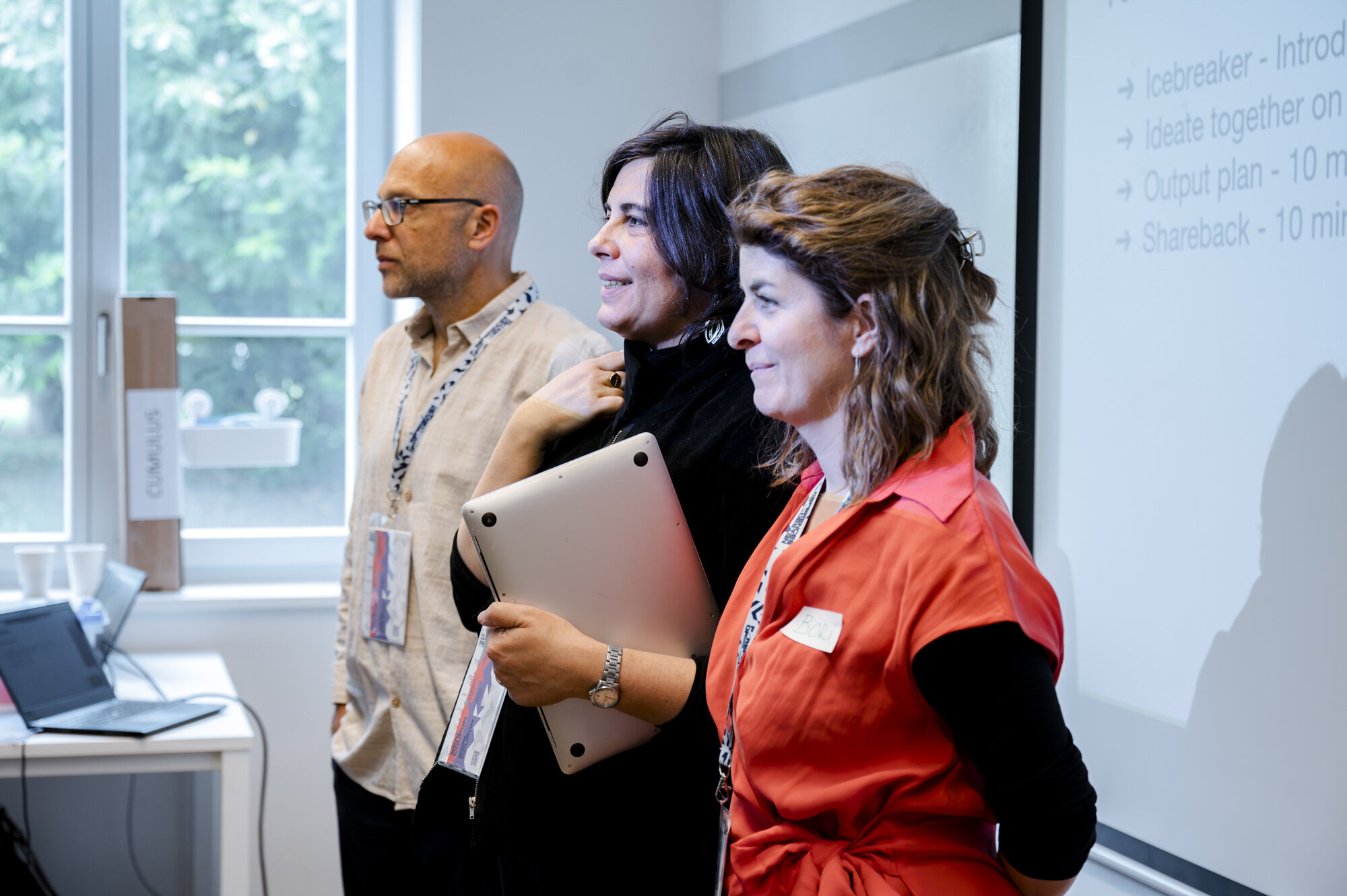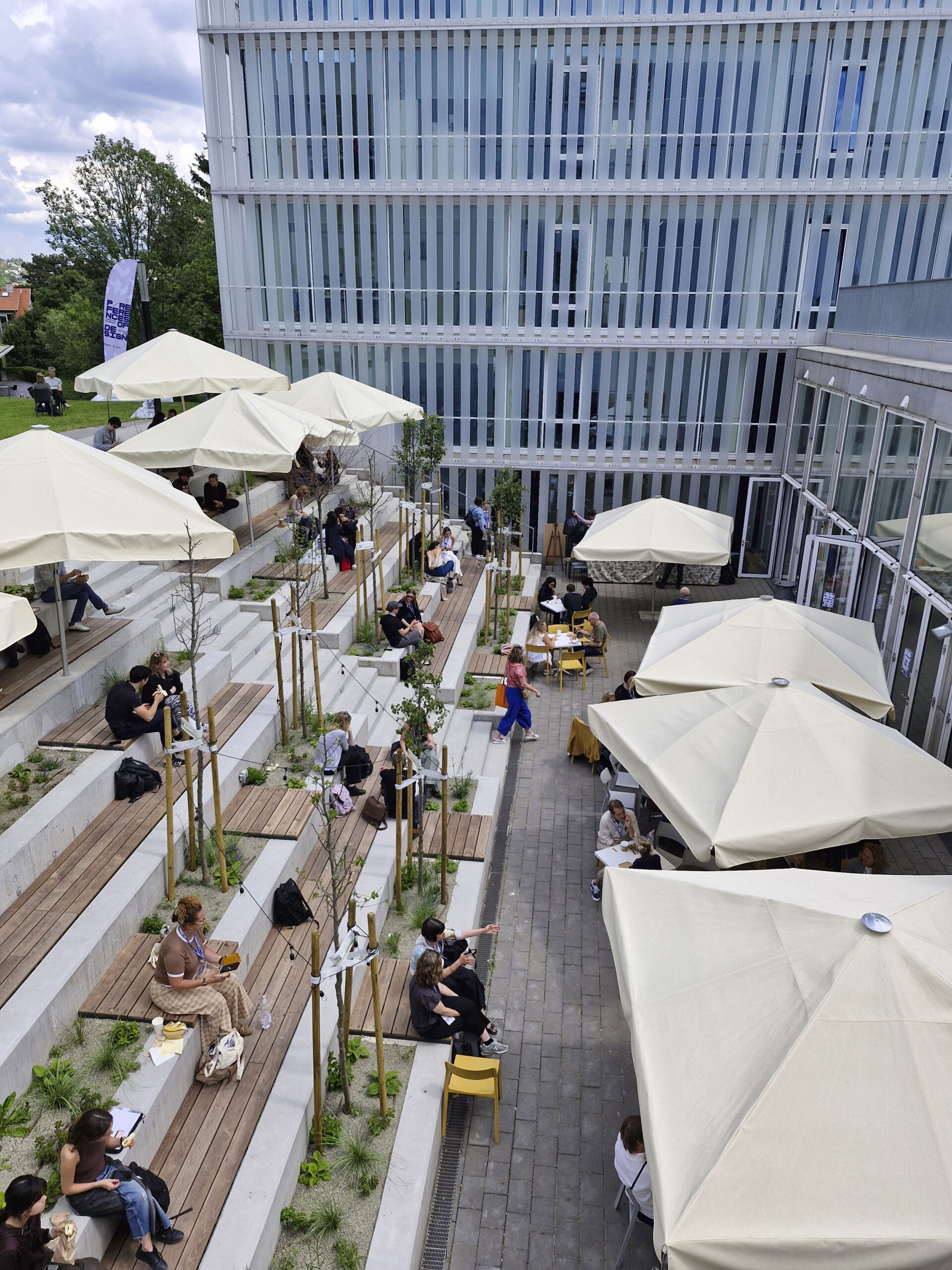In the context of the conference CUMULUS BUDAPEST 2024 the first workshop of the CUMULUS WORKING GROUP DESC (Design Education for Social Change). This working group was co-founded by Bori Féher (Moholy Nagy University, Budapest), Francesco Mazzarella (LCF, UAL, London), Jonathan Ventura (Shenkar College, Tel Aviv, Israel) and our ESDA DESIS Lab (Coords. Core Team: Cecilia Casas, José Chávez and Alberto Franco).

This Working Group created by the joint efforts of the Social Design Network (DSN) and the DESIS Network aims to investigate key aspects and innovative didactic approaches of design for social change. What does it mean to teach and learn to design for social change? How can we facilitate a better understanding of the various approaches and fields of teaching design for social change?

The workshop was attended by 31 people from 20 different countries, with introductory remarks by Teresa Franqueira and Ezio Manzini. The workshop was based on the results of the survey "MAPPING THE LANDSCAPE OF DESIGN EDUCATION FOR SOCIAL CHANGE". launched a couple of months before the event. The main objective of the project was to create a qualitative mapping of current design courses, units and initiatives focused on design education for social change in CUMULUS member institutions, in order to foster global knowledge exchange and collaboration. During the workshop, the results of the mapping activity were discussed and the ways in which the new working group will continue to work in the future were jointly defined.
Thank you José Chávez for the mapping graphic.

Inauguration of the CUMULUS WORKING GROUP DESC (Design Education for Social Change)
In the context of the CUMULUS BUDAPEST 2024 conference, the first workshop of the CUMULUS WORKING GROUP DESC (Design Education for Social Change) has taken place. This working group was co-founded by Bori Féher (Moholy Nagy University, Budapest), Francesco Mazzarella (LCF, UAL, London), Jonathan Ventura (Shenkar College, Tel Aviv, Israel) and our ESDA DESIS Lab (Coords. Core Team: Cecilia Casas, Jose Chávez and Alberto Franco).
At the whole, this Working Group created by the joint efforts of the SocialDesign Network (DSN) and the DESIS Network aims to investigate key aspects and innovative didactic approaches to design for social change. What does it mean to teach and learn to design for social change? How can we facilitate a better understanding of the various approaches and fields of teaching design for social change?
The workshop was attended by 31 people from 20 different countries, with introductory remarks by Teresa Franqueira and Ezio Manzini. The workshop was based on the results of the survey MAPPING THE LANDSCAPE OF DESIGN EDUCATION FOR SOCIAL CHANGE'. launched a couple of months before the event. The main objective of the project was to create a qualitative mapping of current design courses, units and initiatives focused on design education for social change in CUMULUS member institutions, in order to foster global knowledge exchange and collaboration. During the workshop, the results of the mapping activity were discussed and the ways in which the new working group will function and create tangible value were jointly defined.
Thank you, Jose Chavez, for the mapping graphic design.
